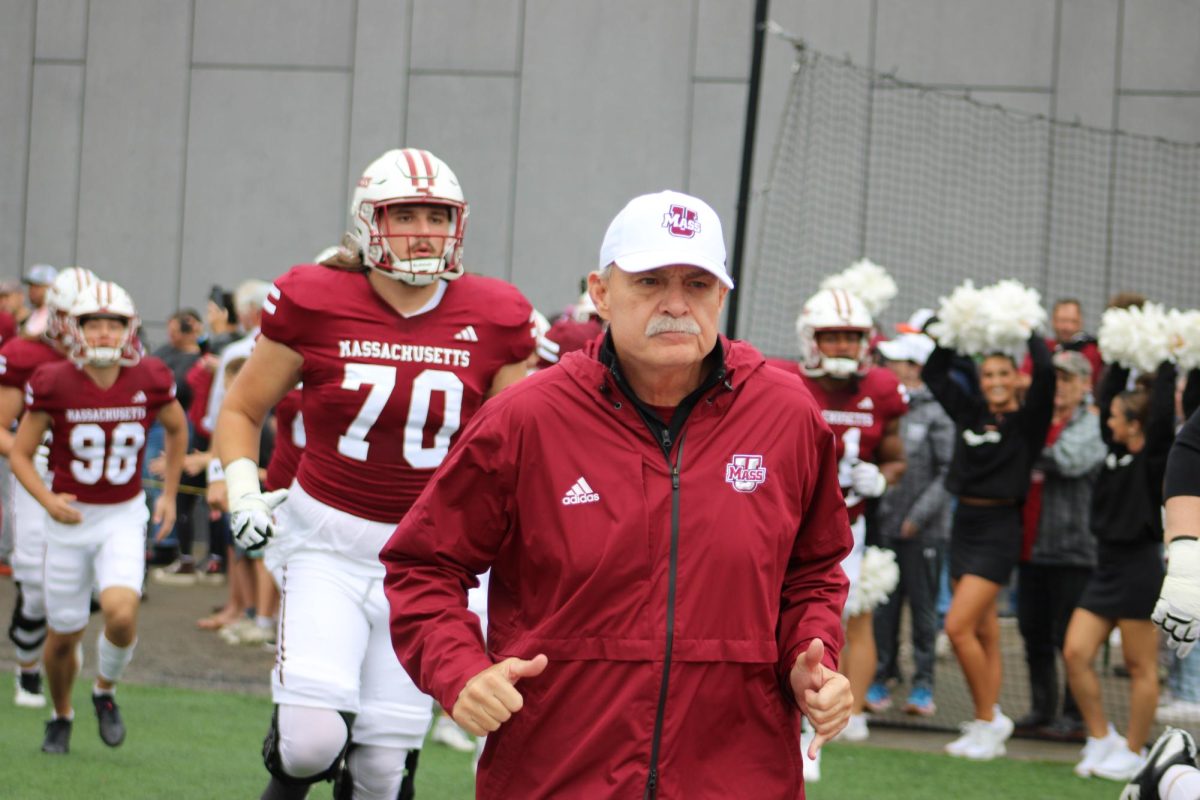
Hours after University of Massachusetts Police alerted students to an armed assault by two suspects in Pierpont Hall Thursday night, Chief Tyrone Parham said in a press conference that the two men were willingly let into the dorm by someone they knew.
Parham noted that Pierpont, like all other residence halls on campus, is locked 24 hours a day. Currently, dorms can only be unlocked by using the student identification card of a resident of the building. Neither of the two assailants were UMass students.
In the aftermath of Thursday’s armed assault, which resulted in the arrest of 19-year-old William McKeown, students have expressed varied views on whether campus guest policies at UMass should be made stricter.
“I think that a stricter policy wouldn’t necessarily solve the problem,” said Cameron Morose, a junior studying public health and psychology. “I think it would just make students more frustrated trying to get students into their dorms.”
Students are only required to sign in residence hall guests after 8 p.m, and residents can have up to four guests. The two men were let into the building shortly after 5 p.m. Thursday.
Jasmyn Guzzetti, a sophomore studying journalism and psychology, felt similarly to Morose. Guzzetti said that necessitating students to be signed in during all hours of the day would be too impractical a policy to implement and that it would create too many everyday difficulties for students trying to sign people into their residential buildings.
Guzzetti also noted that currently students need identification cards approved with their buildings to enter them and that the current system is “pretty strict as it is.”
“Everyone’s kind of gotten used to it with what’s happening lately so I think it’s more telling of our gun laws,” Guzzetti said. “The fact that he had it…I think that’s more of the issue than anything else,” she added, referring to the firearm allegedly brandished by one of the men accused of assault.
Some students at UMass said that they did not believe the current residence hall laws are strict enough.
Jessica O’Malley, a sophomore studying public health, said that most of the time the current system does not prevent people from being let into residential buildings by strangers.
“I’m really not surprised by what happened,” O’Malley said. “Literally anyone can get into a building whenever they want.”
Jake Nadreau, a sophomore studying anthropology, said that the guest policies at UMass should be changed.
“Anyone can get in and out as long as you wait for someone to walk by,” Nadreau said.
UMass’ residence hall security has come into question in recent history as well.
The University hired a New York-based consulting firm in 2013 to review its residence hall security following the 2012 rape of a student in Pierpont Hall. Four men, who were not UMass students, gained entry to the building, and have since been convicted of raping the then-freshman student.
UMass ultimately spent $1.5 million toward residence hall security, and overhauled both its electronic sign-in methods and security procedures within the buildings.
Thursday’s police response
Students responded positively to UMPD’s reaction to the reported armed assault, which included multiple text alerts and a shelter in place order to all of the campus.
“I thought the whole lockdown was pretty necessary,” said Jack Griffin, a sophomore studying finance. “They secured it pretty quickly.”
Parham said officers, including those in plain clothes, responded nearly “instantaneously” to Pierpont.
Morose said that UMPD behaved promptly in responding to the report and that they were successful at communicating with students, saying “I felt very informed.”
O’Malley, however, said that she was concerned that the first report of the incident was only received by students thirty minutes after UMPD were notified of what was going on. In his press conference, Parham said a dispatcher first received a call about the incident at 5:17 p.m. The first alert to the campus community came at approximately 5:45 p.m.
Katherine Jarvis, a freshman studying science, was also unsatisfied over the space between the phone call and the first emergency update.
“I know a half hour after it happened, we all got the alert,” Jarvis said. “So that kind of worries me a lot.”
But Nadreau said that the police responding to the incident itself at Pierpont was of more importance than immediately notifying the campus.
“Sometimes containing is better than reporting,” he said.
Stuart Foster can be reached at [email protected] or followed on Twitter @Stuart_C_Foster.


















